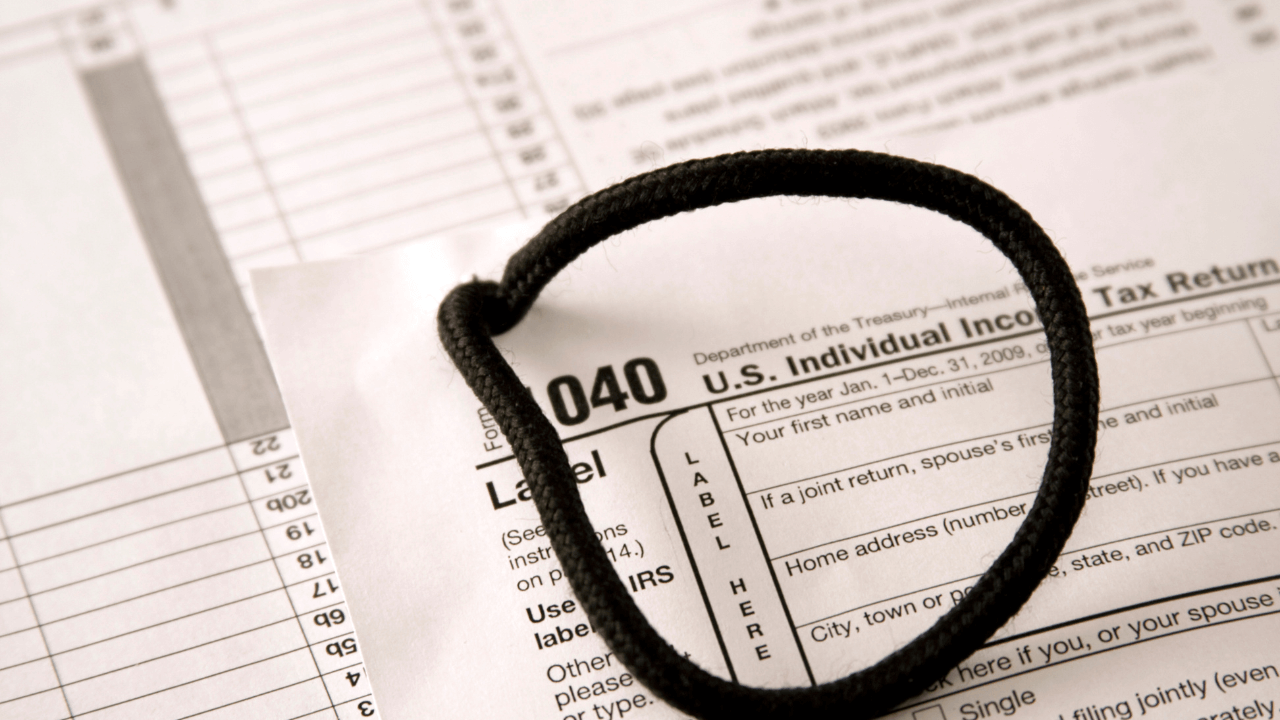Language:
Top Tax Loopholes for Small Businesses

As a small business owner, you’ve got to work countless hours and overcome multiple hurdles to earn more profits and sustain your growth.
However, the tax burden on your business can be devastating as you pay a significant chunk of your earnings in taxes instead of reinvesting it in your business. In fact, of the top ten most challenging problems small business owners face, four are tax-related.
According to NFIB’s 2021 Tax Survey, 64% of small business owners reported that business taxes are the biggest culprit for their financial and administrative burden.
Imagine if you could use the amount you’ve paid in taxes to support employees, boost operations, and expand your business. You could also add it to your rainy day fund in case your business takes a financial hit, which many experienced during the pandemic.
The good news is that it’s all possible with loopholes like tax deductions.
There are multiple tax deductions for freelancers, self-employed individuals, and small business owners. You can use them to reduce your business taxable income and avoid paying high tax bills.
Understanding Tax Loopholes
Whenever someone reads or hears about tax loopholes, they often associate it with an illegal or unlawful activity. Contrary to popular belief, tax loopholes are legal since they’re a law provision or a shortcoming in legislation allowing small business owners to lower their tax liability.
However, it’s different from tax evasion, which involves illegal actions to avoid paying taxes, while tax loopholes utilize legal means to minimize taxes. Federal and state authorities sanction these loopholes since small business owners are the biggest contributors to economic growth.
They create 66% of net new jobs, enabling more people to spend their income and circulate money into the economy.
Taking advantage of tax loopholes allows you to pay less taxes and use your hard-earned money to hire more, invest back, and increase employees’ compensation. Therefore, the government provides tax loopholes to enable small business owners to participate actively in economic recovery.
Learning more about these loopholes would help you keep as much money as possible in your pocket. In this article, we have covered all the potential tax loopholes, such as write-offs, deductions, and credits, so you can reduce your taxes and maximize the amount you get to keep.
But before we look at some of the most popular small business loopholes, let’s learn more about their eligibility to help you utilize them effectively.
Eligibility for Tax Loopholes
Small businesses often have two business structures: Limited Liability Companies (LLCs) or S-corporations. While both give you access to pay a lower effective tax rate, tax deductions for LLCs are more flexible since you can write off almost all your expenses for business purposes.
LLCs qualify for Section 179 deduction for equipment purchases and the Qualified Business Income Deduction (QBID) for pass-through entities. S-corporations are also eligible for the Qualified Business Income Deduction (QBID) and the ability to deduct reasonable compensation paid to shareholders.
Therefore, you should understand the eligibility criteria and requirements for specific tax loopholes to stay compliant with federal laws and regulations. Start by reviewing all applicable tax laws to identify deductions or credits that could lower your overall tax liability.
Keep in mind that certain states, industries, or business types have specific loopholes, so it’s essential to tailor your research accordingly. You can also consult with a tax professional or compliance advisor who can help you easily navigate the complexities of tax planning.
Key Tax Loopholes for Small Businesses
Many tax breaks, such as deductions and credits, are available for small US businesses. They’ll help you reduce your tax liability and keep more money in your account.
According to the Internal Revenue Service (IRS), deductible business expenses are necessary for the business. While some deductible costs are obvious, such as rent, equipment cost, and staff salaries, others might not occur to you at first. That’s why we’ve found and compiled all the tax breaks and loopholes to help out with your research.
Home Office Expenses
Since most small businesses operate from homes, their owners can tax deductions for the home office expenses related to running their business. Self-employed individuals can also benefit from this loophole by meeting specific criteria.
First and foremost, you must exclusively use this space for business activities, making you eligible to deduct expenses related to your home office, such as rent and maintenance.
It may also include rent/mortgage interest, utilities like electricity and internet, insurance premiums, and property taxes. However, the deduction amount depends on the percentage of your home’s total square footage dedicated to your home office.
For example, if your home is 2,000 square feet and your dedicated home office takes up 200 square feet (10%), you can deduct 10% of eligible expenses from your taxes.
You must use Form 8829 to claim this deduction when filing your taxes and keep detailed records and receipts of all eligible expenses in case of an audit. The limit is $1,500 per year or $5 per square foot, which applies to the total deduction, not each expense.
Vehicle Expenses
When you use your vehicle for business purposes, you’ve to pay for all the vehicle-related expenses from your own pocket. However, you can offset these costs and reduce your tax burden with tax deductions for vehicle owners.
The first tax deduction is the standard mileage rate to deduct a set amount per mile driven for business purposes, which is 66.5 cents per mile for the 2023 tax year. To take advantage of this deduction, keep track of all business-related miles driven throughout the year and calculate the total at tax time.
Another option is to deduct actual car expenses, such as gas, insurance, maintenance and repairs, registration fees, and depreciation. However, if you choose this deduction method in the first year of owning a vehicle, you cannot switch back to the standard mileage rate in later years.
In order to claim any vehicle expense, you must have a detailed log of business travels conducted while using the vehicle. This includes keeping track of miles driven, receipts and records, and parking fees and tolls incurred.
Retirement Contributions
Small business owners can enjoy significant tax benefits by contributing to a retirement plan. While most often overlooked, this deduction actually has double benefits. It allows you to save for your golden years and reduce your taxable income, too.
However, most retirement plans have contribution limits and rules, so it’s important to research first to find the one that fits your needs. Solo 401(k) plans are ideal for self-employed individuals in which you can make contributions of up to 66,000 for the tax year 2023.
Contributing to a retirement plan reduces your taxable income and allows for tax-deferred growth on your investments until you withdraw them during retirement. It will enable you to defer a significant amount of your income, lower your current tax liability, and help you save more for retirement in the long run.
Section 179 Deduction
Section 179 is one of the creative tax deductions that allows small business owners to deduct the total cost of qualifying equipment and software in the purchasing year. To qualify for this deduction, the equipment or property must be used primarily for business purposes and not for personal use. Under this provision, small businesses can deduct up to $1,160,000 in qualified expenses for the 2023 tax year.
Additionally, the Section 179 deduction allows for a phase-out threshold, which means the deduction is no longer eligible once the total cost of qualifying property placed in service during the tax year exceeds $2,620,000.
Leased equipment may also qualify for this deduction if it meets specific requirements outlined by the IRS. Another critical aspect of Section 179 deductions is that they cannot create a net operating loss (NOL) – meaning you cannot use them to reduce your taxable income below zero. However, you can carry forward an unused portion of the deduction into future tax years.
Bonus Depreciation
Bonus depreciation was initially introduced as part of the Economic Stimulus Act of 2008 and has been extended and modified several times since then. Under the Tax Cuts and Jobs Act (TCJA) of 2017, the latest version allows businesses to deduct up to 100% of qualifying property in the year of service.
This includes things like new machinery, equipment, computers, and furniture that have a useful life expectancy of 20 years or less.
Another advantage of this deduction is that there is no limit on how much you can claim in a year. Small businesses eligible for Section 179 may also take advantage of bonus depreciation by claiming both deductions simultaneously.
This means they can deduct up to $1 million under Section 179 and then claim bonus depreciation on any remaining amount above that limit.
Charitable Contributions
Small businesses are eligible for a charitable contribution deduction. However, the donation must meet certain requirements set by the IRS. First and foremost, the recipient organization must be recognized as a qualified charity under section 501(c)(3) of the Internal Revenue Code.
Additionally, there are limits on how much of your business’s income you deduct through charitable contributions. The maximum amount is typically 60% of your adjusted gross income (AGI), but this can vary depending on the type of organization you donate to.
Another way to take advantage of this tax loophole is to donate goods or inventory instead of cash. By donating products or materials no longer needed for business operations, companies free up space and receive a valuable tax deduction.
In addition to donations of money and goods, small businesses can also donate their time and skills to charity work. For example, if you have a lawn care business, offering pro bono services to a qualified charity can result in tax deductions for your lawn care business.
Self-Employment Tax
While the self-employment (SE) tax for Social Security and Medicare is a huge burden for your small business, you can reduce a large portion of this tax. Start by claiming all possible business deductions to reduce your net taxable income.
The lower your profit, the lower the SE tax. Then, select the S-Corp business structure not to pay any self-employment tax. Instead, you’ll get a W-2 salary subject to Social Security and Medicare taxes.
Therefore, your distributions from the S-Corp will not be subject to any self-employment tax by setting your W-2 salary lower than your S-Corp profits. For example, you’d have to pay almost $23,000 in self-employment tax for your income of $150,000 under sole proprietorship.
However, switching to an S-Corp would save $13,820 in taxes by paying yourself a $60,000 W-2 salary.
Avoiding Common Pitfalls
There is a long list of loopholes you can use to reduce your taxes. However, it would be best to stay compliant with tax laws to prevent audits and penalties. You must also ensure that your income and expenses are classified accurately and according to IRS guidelines.
You should avoid inflating expenses and ensure all claimed expenses are legitimate and directly related to your business activities.
Keep detailed records and retain receipts and invoices to substantiate deductions to prevent missed deductions and potential audits. You can use accounting software to track income and expenses, automate bookkeeping to identify discrepancies and generate financial reports for tax purposes.
Tips for Avoiding Audits and Penalties:
- Follow IRS Guidelines: Familiarize yourself with IRS rules and regulations regarding deductions and credits to ensure compliance.
- Be Conservative with Deductions: Avoid aggressive tax strategies and take only legitimate deductions that you can substantiate with documentation.
- File Accurate and Timely Returns: File your tax returns accurately and on time to avoid penalties for late filing or inaccuracies.
- Consider Professional Assistance: Consult with a tax professional or accountant to maximize deductions while minimizing audit risk.
Take the Tax Stress Off With doola
Keeping up with tax regulations and quarterly tax filings is a significant responsibility any business owner should take lightly. However, gathering all information, identifying eligible deductions, and filing your taxes right on time can be challenging.
With doola’sTotal Compliance Package, you can focus on earning money by running a thriving small business while we take care of all your tax obligations.
Whether you’ve just started your LLC or are already running a successful company, we’ll be with you every step of the way to handle your tax and compliance needs. With doola by your side, you can rest assured that your taxes are managed by professionals who understand the intricacies of tax laws and deductions. So, you can relax, knowing that your tax compliance is in good hands.
Book a consultation with experts to get your tax questions answered and navigate the complexities of taxes with confidence.
FAQs
What are deductible expenses?
According to the IRS, any items you may find are necessary to keep your business running smoothly are deductible expenses.
What can I deduct for small business expenses?
The IRS allows you to use your business-related expenditures to lower your income tax bill. According to the IRS, these expenses must be accepted in your industry and necessary, helpful, and appropriate for your trade or business.
What tax credits are available for small businesses?
There are many tax credits for small businesses to help reduce your total tax liability by providing financial incentives for specific activities, such as Research and Development (R&D) and Disabled Access Credit.
Does incorporating ensure a tax break?
While most tax benefits are for incorporated small businesses, you should check whether your business structure is eligible for your desired tax deductions and credits.
Keep reading
Start your dream business and keep it 100% compliant
Turn your dream idea into your dream business.

















